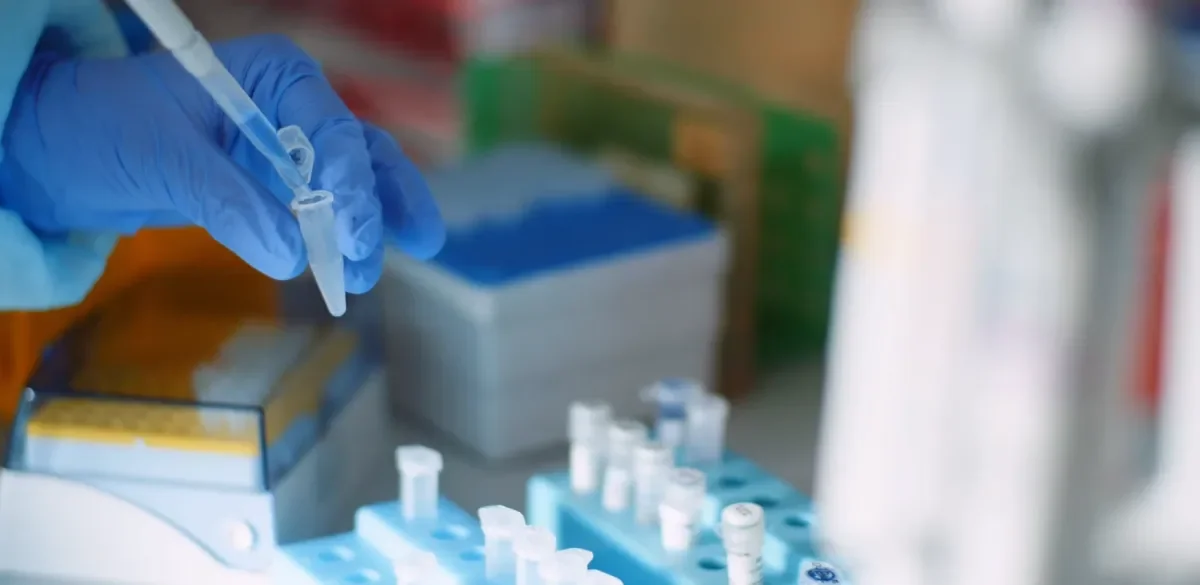

DCU collaborates with Irish Medical Device company PBC Biomed on new bone fracture treatment, recently awarded ‘Breakthrough Device Designation’ by the FDA
The new bioadhesive is a biomaterial, something which has been engineered to interact with biological systems, in this case to heal bone fractures. The bioadhesive uses phosphoserine, a common molecule found in numerous proteins which, when combined with alpha-tricalcium phosphate powder, generates adhesive biomaterial that can stabilise and repair bone fractures.
Prof Nick Dunne, Executive Director of Biodesign Europe, said:
“The collaboration between Dublin City University and PBC Biomed exemplifies the power of interdisciplinary efforts in research and development. The 'Breakthrough Device' designation by the FDA validates the promising trajectory of OsStic®, showcasing Ireland's capability to lead in cutting-edge medical technologies. This achievement not only highlights the success of the project but also emphasises the importance of sustained investment in disruptive technologies to foster innovation and elevate Ireland's global standing in the medical device industry."
Dr Gerard Insley, Chief Scientific Officer, Biomimetic Innovations Ltd. said:
“This announcement marks a major milestone in the evolution of calcium-based biomaterials. The proposed indication will be unique and for the first time will address all surgeon needs when dealing with complex fractures and allow for faster recovery times and greatly improved results for patients.”
Dr Carolyn Hughes from DCU Invent said:
“We congratulate the team at PBC Biomed on achieving this important milestone. This illustrates the ability to accelerate innovation through effective collaboration with our world-class research experts at DCU. The breakthrough offers the potential for life-changing improvement to patients' lives.”
Currently, metal hardware is widely used in treating post-traumatic bone injuries. However, this hardware has limitations and can result in poor healing and a lack of mechanical integrity, particularly in fractures occurring in patients with osteoporosis. Bone plates, screws and pins tend to loosen over time, necessitating their removal, which can lead to loss of crucial bone material. Additionally, there is currently no convenient method to stabilise small bone fragments and prevent micromotion in cases involving multiple bone fragments resulting from multiple breaks.
Calcium phosphate cement presents an alternative to metal hardware, but it still has inferior physical and biological properties compared to native tissue. This inferiority is due to its brittle nature and poor tensile and shear properties resulting from randomly organised networks of entangled crystals. The lack of effective commercially available bone bioadhesives is due in part to the complex nature of bone repair, a process which requires mechanical stability in wet conditions, sufficient working time for the surgeon.
The underlying research behind this new bioadhesive was recently published in Acta Biomaterialia. The team used specialist data analysis software to investigate the capabilities of the bioadhesive, hitting upon an optimal formulation in terms of key clinical properties that can be manufactured at scale and is cost-effective.
The Biodesign Europe research centre at DCU has been collaborating with PBC Biomed for the last eight years. This research project was made possible by €5.4 million in funding from the Disruptive Technologies fund which the two organisations secured as part of a consortium in 2021. Further funding came from the SFI I-Form research centre. PBC Biomed also has a three year ongoing relationship with DCU Invent, the university’s commercialisation unit. Biomimetic Innovations Ltd, an affiliate of PBC Biomed, made this latest announcement today, 26th January.
About Biodesign Europe
Biodesign Europe combines the research strengths of Dublin City University and Arizona State University to find new innovations in bioengineering and biomaterials. Their scientific discoveries and biomaterial innovations are being directed towards the areas of human health, community safety and global sustainability. Further information available here.
About Biomimetic Innovations Ltd
Biomimetic Innovations Ltd., is an affiliate of PBC Biomed; a medical device company involved in design, development and manufacturing headquartered in Shannon, Ireland and with offices in Memphis, Tennessee and Chamonix, France.
